#Precision CNC Machining for Medical Devices
Explore tagged Tumblr posts
Text
Precision CNC Machining for Medical Devices
Get precision CNC machining services at RPWORLD. We specialize in CNC milling, CNC turning, and high-quality on-demand manufacturing solutions.
0 notes
Text
What Medical Parts Can Be CNC Machined

With the manufacturing development of technology, the precision and diversity requirements of medical equipment are increasing day by day. Computer numerical control (CNC) machining technology has become one of the key processes for manufacturing medical parts due to its high precision and good repeatability.
Every small part of medical devices is crucial, especially those implanted in the human body or used in critical diagnostic processes. These applications require parts to have extremely high precision and good biocompatibility, where CNC machining technology plays an irreplaceable role.
Application of CNC Machining in Medical Industry 1.High precision medical parts ①Implant Devices implanted in the human body, such as pacemakers, artificial joints (such as hip replacements and knee implants), and dental implants, require extremely high precision and biocompatibility. CNC machining centers can process complex geometric shapes based on detailed CNC programming and achieve extremely high tolerance control to ensure the consistency and specification accuracy of parts.
②Surgical tools Including scalpels, scissors, complex robotic arms, etc., these tools need to be manufactured with high precision to ensure the smooth progress of the surgical process and the safety of the patient. CNC machining centers are able to produce complex geometries and strict tolerances to meet the high precision requirements of surgical tools.
③Electronic medical equipment Certain components of magnetic resonance imaging (MRI) machines, such as structures, brackets, and housings, as well as housings for various medical diagnostic devices, are often CNC machined to ensure precise dimensions, durability, and compatibility with electronic components.
④Endoscope components Endoscopic Housings and Parts: CNC machining is used to produce components for endoscopic devices, including housings, connectors, and structural parts.
2.Personalized Medical Equipment ①Prosthetics and assistive devices The CNC machining center uses 3D scanning and CAD modeling technology to customize prostheses and assistive devices according to the patient's physical characteristics, ensuring the perfect fit and functionality of the equipment. This personalized customization improves patient comfort and treatment outcomes.
②Orthopedic implants Based on the patient's bone structure and needs, CNC machining centers can manufacture personalized orthopedic implants to achieve precise medical repairs.
③Prosthetics and orthotics CNC machining is used to manufacture custom components for prosthetics, including socket components, joints and connectors, as well as orthotic brace components that provide support and alignment for various parts of the body.
3.Medical device prototype Rapid prototyping is a critical component of the medical device development process. CNC machining centers can quickly convert digital designs into physical prototypes, allowing engineers to test and improve designs in a short period of time, thereby accelerating product development cycles.
Processing of Biocompatible Materials Material selection and use is a very important level in the manufacture of diagnostic and therapeutic parts. CNC machining centers can process a variety of materials, including plastics (such as production-grade plastics such as PEEK), metals (such as aluminum, titanium and stainless steel), ceramics and other biocompatible materials. It is particularly important that the selection of these materials needs to consider tolerances, ductility and tension requirements, as well as handling and sterilization requirements. And CNC machining can ensure that these materials maintain their performance and biocompatibility during the processing process.
Small Batch & Automated Production For medical equipment that needs to be produced in small batches, CNC machining centers can flexibly adjust production plans, reduce production costs, and improve production efficiency.
The integration of CNC machining centers with advanced technologies such as automation and artificial intelligence (AI) has realized the automation and intelligence of the production process. This reduces the variables and errors introduced by human operations and improves production efficiency and product quality.
When choosing a manufacturer to CNC machine medical parts, key factors to consider include the need for high precision and strict safety performance standards. The manufacturer should have the ability to handle difficult-to-machine materials and complex workpiece shapes, and be able to cope with the requirements of CNC low-volume production. The CNC machining shop should have advanced equipment and experienced engineers to ensure that the medical or dental project can be delivered on time and meet the design specifications.
In summary, CNC machining technology plays an increasingly important role in the medical parts industry due to its unique advantages, driving medical equipment towards higher precision, faster response and better adaptability. Its application in the medical industry is multifaceted, from high-precision surgical instruments to complex implants, all rely on CNC machining to achieve. With the development of technology and the improvement of quality requirements for medical equipment, CNC machining will continue to play an important role in the medical industry.
#design#business#autos#prototyping#prototype#prototype machining#rapid prototyping#cnc machining#precision machining#machining parts#cnc medical machining#cnc medical parts#cnc medical#medical devices#medical device machining#cnc precision machining#cnc processing#cnc manufacturing#cnc factory#cnc manufacturer
1 note
·
View note
Text
Reasons to Use Aluminum for Die-Casting
There are various popular processes you can use to form aluminum; however, one of the most common processes that a designer considers is aluminum die casting.
Nowadays, Aluminium Die Casting Companies use the method for many automotive, industrial, and telecommunication products. In fact, it is also utilized to create electrical hydraulic, and lighting components.
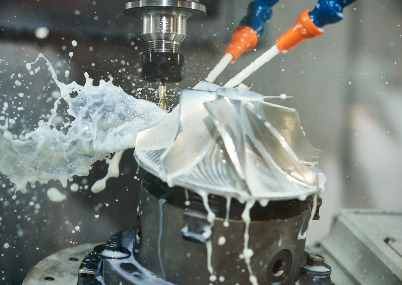
Overview of Aluminum Die Casting
To put it simply, it is a metal-forming process that enables the design of intricate aluminum parts. To initiate the process aluminum alloys are heated to excessively high temperatures until they are molten.
Furthermore, under high pressure, liquid aluminum is inserted into the hole of the steel die. Since the die is made up of two halves, the solid molten aluminum gets separated and displays the aluminum part. The product is developed explicitly with a soft texture and usually needs the tiniest and no machining process.
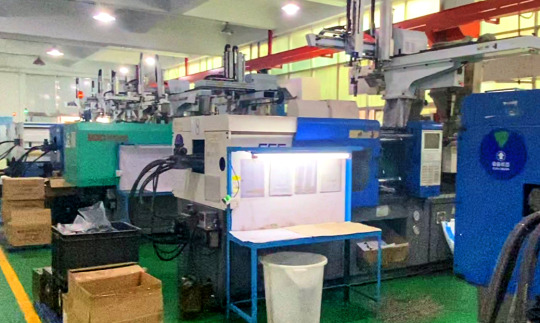
The Advantages of Aluminum Die-Casting
Its Weight
Aluminum is hugely favored for its lightweight quality. Since it is the lightest metal, it is no great surprise that Aluminum Die-Cast parts are highly sought after in the aviation and motor industries.
Flexibility
Are you looking for a metal that’s easy to work? Aluminium is the answer! Since it is the second malleable metal and ductile – it is hard to beat in terms of flexibility.
Conductivity
Aluminum is a great electrical and thermal conductor. Though copper is even more conductive – it is heavier which can often be a disadvantage. It is only a third of the weight of copper. Adding to the fact, that aluminum is non-sparking – it is the chosen metal for various applications including electrical products, computer parts, and LED lighting.
Resistance to Corrosion
Thanks to the strong oxide film – it forms on the surface of aluminum when it is exposed to air or water. It is highly resistant to corrosion. The coat of aluminum oxide hardens the surface and keeps the metal free from corrosion.
Bottom Line
Aluminium is 100% recyclable. Aluminum can be melted down and reused without its favorable quality. Apart from the topmost quality – there are more advantages to using aluminum in die casting.
#precision manufacturing#precision machining companies#cnc machining service#die casting companies#die cast metal#aluminium die casting#aluminum alloy die casting#medical device companies#machining medical devices#medical equipment parts#medical component supplier#optical manufacturing#medical parts supplier
1 note
·
View note
Text
5 Typical CNC Machining Medical Devices Manufactured by Falcon
Welcome to Falcon's presentation on our CNC machining capabilities for medical device parts. Our CNC technologies, such as Swiss machining services, provide the versatility and accuracy required for the production of medical parts. Today, we'll look at five common medical machining parts that Falcon manufactures well with high precision and accuracy.
Read More

#precision medical machining#medical cnc machining#cnc machining medical devices#medical machining parts#precision micro machining#medical precision machining
0 notes
Text

At the #HEART of every reliable #Medical imaging #Device lies #Precision #GoyalInc Expertly engineered components offer tight tolerance & #dimensional accuracy needed for #CT Scanners #Xray systems & #MRI #Machines #Count on us for #performance that #saves #lives http://incgoyal.com https://x.com/goyal_inc https://www.youtube.com/@GoyalInc https://www.instagram.com/goyalinc https://in.pinterest.com/goyalinc https://www.facebook.com/incgoyal https://www.threads.net/@goyalinc #Marketing #Engineering📐 #PrecisionMachining #CNC #tools🛠️ #Casting #Diecasting #Precisionmachinedparts #MachinedParts⚙️ #MachinedComponents #Manufacturing #hpdc
2 notes
·
View notes
Text
How Plastic Fabrication Can Benefit Your Business

Plastic fabrication is a process that turns raw plastic materials into useful products for various industries. Whether it’s for prototyping, custom designs, or creating complex components, plastic fabrication offers a wide range of benefits to businesses of all sizes. This article will explore how this versatile method can help elevate your business operations.
Streamlined Production and Customization
One of the most significant advantages of plastic fabrication is its ability to streamline production. With advanced technologies such as CNC machining, laser cutting, and 3D printing, businesses can manufacture precise and complex plastic parts with minimal effort. This reduces the need for additional labor or lengthy production timelines.
Customization is also a key benefit of plastic fabrication. Unlike traditional mass production methods, plastic fabrication allows companies to create customized products that meet their specific needs. Whether you’re creating unique prototypes or designing parts for specific machinery, the ability to customize products ensures your business stands out in a competitive market.
For instance, industries like automotive, aerospace, and healthcare often rely on tailored plastic components to fit specific equipment requirements. By working with a reliable plastic fabrication company, you can ensure that your custom needs are met with high precision and quality.
Cost-Effective Manufacturing
Another benefit of plastic fabrication is its cost-effectiveness, especially for small to medium-sized businesses. Traditional manufacturing methods, such as metal fabrication, can be expensive due to the high costs of raw materials and production processes. In contrast, plastic materials tend to be more affordable and versatile, making it a great choice for businesses looking to save money while still producing high-quality products.
Additionally, plastic fabrication offers long-term savings due to the durability and longevity of the materials used. Many plastic materials are resistant to corrosion, weathering, and wear, ensuring that your products will last longer, reducing the need for frequent replacements.
Versatility Across Industries
Plastic fabrication is incredibly versatile and can be used across numerous industries. Whether you’re in the medical, electronics, packaging, or construction industries, plastic parts and components are essential to your business operations.
For example, in the medical field, plastic fabrication is used to create sterile surgical instruments, medical devices, and protective barriers. In electronics, plastic enclosures are often used to protect sensitive equipment from environmental damage. In packaging, plastic containers and wraps are designed to securely hold products for transportation and sale.
This adaptability makes plastic fabrication an invaluable tool for various businesses. No matter the sector, the ability to produce customized and durable plastic components will always offer a significant competitive edge.
Finding the Right Plastic Fabrication Partner
Finding the right plastic fabrication company is crucial to ensuring that your products meet high standards of quality and precision. Partnering with an experienced and reliable fabricator can make the difference between a successful project and costly errors. To locate the right professional for your needs, it’s essential to consider their experience, reputation, and ability to work with your desired materials.
If you’re looking for a plastic fabrication company near me, you’ll likely find many local professionals who can meet your requirements. Make sure to check reviews and ask for samples of previous work to ensure they can deliver the quality and service you expect. A trusted local fabricator can help you avoid the logistical challenges of long-distance shipping and offer faster turnaround times for your projects.
Plastic fabrication offers numerous benefits for businesses, including cost savings, customization, versatility, and efficiency. By partnering with a professional plastic fabrication company, you can enhance your product development process and ensure your business stays competitive in the marketplace. Whether you’re looking for precision parts, durable products, or customized designs, plastic fabrication is a smart choice for any growing business.
2 notes
·
View notes
Text
Elevating Precision Manufacturing: The Role of Mekalite’s CNC Machining Service
In today’s competitive manufacturing landscape, precision, efficiency, and adaptability are key to staying ahead. CNC machining has emerged as a vital technology, enabling manufacturers to produce complex and high-precision parts consistently. At Mekalite, we are redefining excellence in CNC machining services by combining advanced technology, a skilled workforce, and a commitment to quality.
https://mekalite.com/
What is CNC Machining?
CNC (Computer Numerical Control) machining is a process that uses computerized controls to operate machinery and tools with high accuracy. This enables the production of intricate parts from a variety of materials, including metals and plastics, while maintaining tight tolerances. CNC machining is critical in industries such as aerospace, automotive, medical devices, and electronics.
Why Choose Mekalite for CNC Machining?
Mekalite sets itself apart by offering a comprehensive approach to CNC machining, ensuring every project is handled with precision and care.
Advanced Machinery and Capabilities Our cutting-edge, multi-axis CNC machines allow us to handle even the most complex designs with precision and consistency. Whether you need rapid prototyping, low-volume manufacturing, or full-scale production, Mekalite’s technology enables us to meet your unique needs.
Customized Solutions We understand that every project is different. Mekalite works closely with each client to understand their specific requirements, delivering tailored solutions that align with their design and functionality goals.
Strict Quality Assurance At Mekalite, quality is our top priority. Our rigorous quality control protocols cover every step of the production process, from material selection to final inspection. This commitment ensures every part meets the industry’s highest standards.
Industries Served by Mekalite
Mekalite’s CNC machining services support a diverse range of industries, including:
Aerospace: High-precision components for engines, structural parts, and aircraft interiors.
Automotive: Custom engine parts, suspension components, and detailed bodywork.
Medical: Surgical instruments, implants, and diagnostic equipment requiring tight tolerances.
Electronics: Housing frames, connectors, and precision parts for delicate devices.
Benefits of Partnering with Mekalite
Choosing Mekalite as your CNC machining service provider offers numerous advantages:
High Precision and Accuracy Our state-of-the-art CNC machines, combined with skilled operators, enable us to achieve exceptional accuracy and repeatability across all projects.
Wide Range of Materials Mekalite’s expertise spans across various materials, from metals like stainless steel and aluminum to specialized plastics. This flexibility allows for innovative product designs and customized applications.
Cost Efficiency and Scalability With automated processes and minimal manual intervention, CNC machining reduces labor costs while enhancing efficiency. Whether you need a single prototype or a large production run, Mekalite’s scalable services can adapt to your requirements.
Timely Deliveries Time is crucial in manufacturing. Our efficient workflows and commitment to meeting deadlines ensure that your projects are completed on schedule, every time.
Looking Ahead: Mekalite’s Commitment to Innovation
Mekalite is committed to staying ahead of industry trends and technological advancements. By continually investing in the latest CNC machinery and refining our processes, we aim to provide even more innovative and reliable solutions to our clients. Our vision is to be a trusted partner in helping businesses achieve new levels of success through precision manufacturing.
Conclusion
CNC machining is revolutionizing the manufacturing industry, and Mekalite is at the forefront of this transformation. Our combination of cutting-edge technology, tailored solutions, and a dedication to quality makes us a preferred partner for businesses across various sectors.
If you’re looking for a reliable CNC machining service provider that delivers precision and value, Mekalite is here to help. Contact us today to discuss your next project!
https://mekalite.com/
2 notes
·
View notes
Text
The Importance of High-tech Rapid Prototyping
In the industrial industry, precision is not only desirable—it is essential. Consider a situation in which parts of a jet engine are even marginally machined incorrectly or misaligned. The repercussions can be disastrous and might cause the engine to fail in midair. Precision becomes the key to success in sectors like aerospace, automotive, and medical where safety and dependability are non-negotiable. Put simply, it's the capacity to manufacture parts or components that precisely conform to given dimensions, tolerances, and quality requirements. It takes state-of-the-art equipment, painstaking attention to detail, and highly competent operators to achieve this degree of accuracy. This is the sweet spot for Precision CNC Machining.
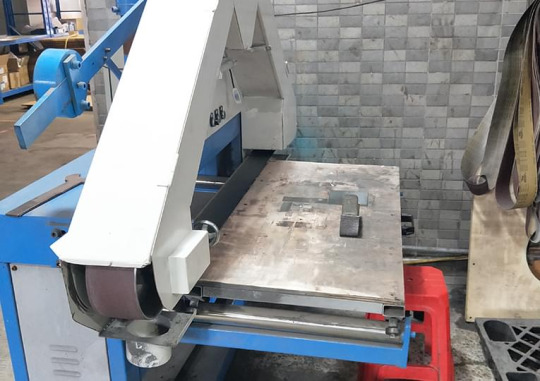
So how precisely can CNC machining accomplish such high precision levels?
Computerized Control: Advanced computer software is the brains of CNC machining, translating digital design requirements into exact motions and orders for the milling tools. This removes the possibility of human error and guarantees the highest level of precision in each cut, drill, and mill.
Superior Quality Equipment: Modern spindles, tools, and cutting implements that are designed to provide exact results are standard on CNC machines. These devices may operate at extremely tight tolerances, which are sometimes expressed in microns, guaranteeing an accurate reproduction of even the minutest features.
Consistency: The ability of CNC machining and High-tech Rapid Prototyping to manufacture similar components with little variance is one of its main advantages. A machine program that has been developed and tuned may be repeated endlessly with reliable outcomes. In fields where stability and dependability are critical, this degree of constancy is priceless.
Advanced Techniques: Multi-axis milling, turning, EDM (Electrical Discharge Machining), laser cutting, and other state-of-the-art methods are all included in CNC machining. With unmatched accuracy and efficiency, manufacturers can handle complicated geometries and materials thanks to these procedures.
Quality Assurance: CNC systems frequently include integrated quality control mechanisms including automated inspections, feedback loops, and real-time monitoring in addition to accurate machining. This reduces waste and rework by guaranteeing that any deviations from the intended standards are quickly identified and fixed. It is impossible to exaggerate the value of accuracy in production. Precision by Precision CNC Machining Manufacturer plays a crucial role in today's competitive economy, as it ensures everything from satisfying regulatory requirements and consumer expectations to assuring product performance and dependability.
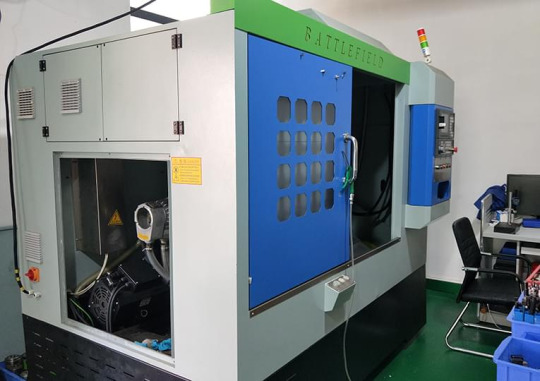
Follow our Facebook and Twitter for more information about our product
#High-tech Rapid Prototyping#Precision CNC Machining#Precision CNC Machining Manufacturer#CNC Machining Manufacturer Company
2 notes
·
View notes
Text
Using the Potential of CNC Machining
In the constantly changing field of product development, efficiency, accuracy, and innovation are always sought after. CNC Prototype Machining is the core of this endeavor; this revolutionary technology has completely changed the way prototypes are imagined, created, and executed.
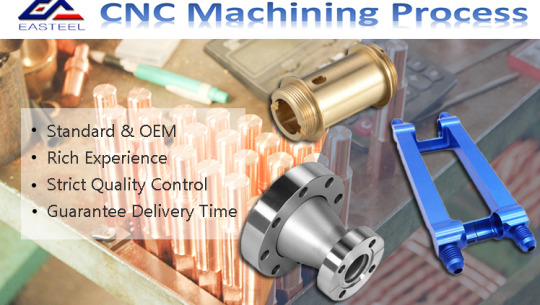
Redefining Precision: The Advantage of CNC
The unmatched accuracy of CNC prototype machining is its foundation. CNC machines are outfitted with the newest technology and are directed by exact CAD/CAM instructions to do jobs with minuscule accuracy. With CNC machining, every detail is painstakingly and precisely carved, whether it be for drilling precise holes or sculpting complex designs.
Innovation Acceleration: Accelerating the Development Cycle
Speed is crucial in the fast-paced environment we live in today. The days of protracted production schedules and never-ending revisions are over thanks to CNC prototype machining. CNC machines help engineers and designers to iterate quickly and bring things to market more quickly than ever before by optimizing the prototype process. This shortened development cycle encourages innovation and experimentation while simultaneously shortening time-to-market.
Unleashing Versatility: From Idea to Actuality
The adaptability of prototype CNC Machining China is among its most impressive features. CNC machines can easily mold a wide range of materials into working prototypes, whether they are made of metal, plastic, wood, or composite materials. The options are endless, ranging from sophisticated consumer electronics to delicate aircraft components.
Filling the Void: From Concept to Manufacturing
In addition to prototypes, CNC machining is essential for bridging the gap between production and design. CNC machines facilitate the process of moving from concept to mass manufacture by producing parts that are ready for production and of superior quality. Prototypes are guaranteed to be workable solutions prepared for practical implementation, not only functional mock-ups thanks to this smooth connection.
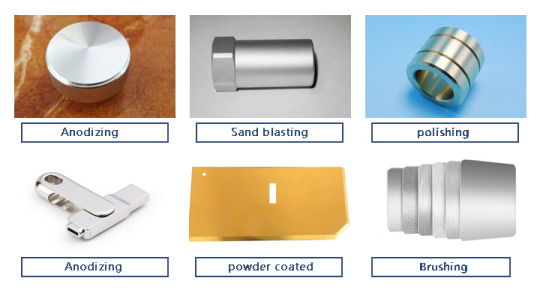
Promoting Innovation in All Sectors
Prototype CNC Machining has a significant influence that goes much beyond the boundaries of a particular sector. CNC machines are pushing innovation across a wide variety of sectors, from consumer products and medical devices to aerospace and automobiles. The future of manufacturing is being shaped by CNC prototype machining, which is at the forefront of innovations such as supply chain revolutions, improved product performance, and the ability to enable new design patterns.
#CNC Machining#CNC Machining process#CNC Machining process China#CNC Machining Techniques#CNC Prototype Machining#CNC Prototype Machining China#CNC Machining China
2 notes
·
View notes
Text
Revolutionizing Precision Manufacturing with CNC Grinding, Gundrilling, and Steering Machines
In order to fulfill demands, business houses including the aerospace and automotive segments are trying out more and more innovations to improve the manufacturing processes in which efficiency and precision are considered vital.
To that note, WIDMA sets itself apart as a brand that personifies innovation and quality. With a lengthy history that dates back to 1984, the brand has consistently raised the standard for the accuracy of machining operations. Setting the standard for innovative solution development, WIDMA expertly blends its unparalleled experience to continuously create and enhance cutting-edge technologies. Here, at the cutting edge of precision engineering, excellence comes from WIDMA's unwavering dedication.
Technologies which revolutionized and brought these changes are Gundrilling, CNC and Steering machines. These machines played a crucial role and revolutionized Precision Manufacturing and ultimately changed the industry once and for all.
CNC Grinding Machines: The Art of Precision
It is considered as the cornerstone of modern precision production. Fully automated, these tools can mold and grind material with acute precision. Complicated medical devices as well as components for the aerospace industry use CNC Grinding machines for producing 100% precise products
Computer-controlled grinding wheels remove the unwanted material. It's precise and meets exact specifications. It is maintained that slightest deviation can lead to complete disaster. In other words CNC ensures highest quality end products.
Gundrilling Machines: Delving Deep into Precision
Gundrilling machines are considered as another cornerstone in precision manufacturing. These machines make holes with accuracy.Therefore industries that require long, narrow holes, such as the automotive sector for engine components and the aerospace industry for aircraft landing gear use these machines.
Gundrilling machines make holes with depth that exceeds their diameter.The precision achieved ensures the components fit seamlessly ,negating risk of malfunction and enhancing product quality. Gundrilling machines operate at high speed. It is empowered with coolant systems to ward off heat and evacuate chips effectively.
Navigating the Future of Automotive Precision
In the car business safety, dependability, and accuracy are essential.Therefore steering machines are crucial. In the automobile industry, steering wheels need to be dependable and so are a crucial unit of manufacture in the automotive industry. Steering machines require a higher level of precision. Modern steering systems use cutting-edge technology like steer-by-wire and electric power steering (EPS).
Steering machines can shape and assemble components with a high level of accuracy.They are intricately designed to handle the intricate modern steering system.They shape the assembled components with tight adjustment and ensure a smooth steering performance.they help in reduction of energy consumption and ensure fuel efficiency .
Synergy of CNC Grinding, Gundrilling, and Steering Machines
It is indisputable that these three work well together. Together they produce intricate parts. Gundrilling machines, for example, are excellent at producing the precisely drilled holes needed for steering machines. Following the drilling of the holes, the dimensional accuracy and surface smoothness are checked using CNC grinding equipment to ensure they meet the required standards.
For instance, when landing gear components are manufactured in the aerospace industry, intricate steering systems with deep holes are created. The integration of CNC grinding machinery and gundrilling equipment ensures that these components not only meet safety standards but also enhance the overall performance and efficiency of the aircraft.
The Future of Precision Manufacturing
In precision production, CNC grinding, gundrilling, and steering machines have become essential instruments. They enable companies to manufacture parts with unmatched precision. By guaranteeing efficiency and safety in a range of applications, they stand well ahead of their competition.
These devices will become progressively more important in determining the direction of manufacturing. They have the potential to enable advances that were previously unthinkable. This is due to their capacity to achieve precision at the nano level.
The continuous pursuit of perfection in precision production through the use of CNC gundrilling, grinding, and steering equipment portends a more promising, secure, and effective future for global industry.
2 notes
·
View notes
Text
Strategies to Overcome the CNC Machinist Shortage
The manufacturing industry is currently grappling with a significant shortage of CNC (Computer Numerical Control) machinists. As technology evolves and the demand for precision-engineered components increases, the need for skilled CNC professionals has surged.
However, with an aging workforce, a skills gap, and a lack of new talent entering the field, companies are finding it increasingly difficult to fill critical roles. To address this challenge, businesses must adopt forward-thinking strategies to attract, train, and retain CNC machinists, explains Trendsetters Facilities and Technical Services (TFTS), India’s top supplier for CNC Machinists and Operators for SME and MSME industries.
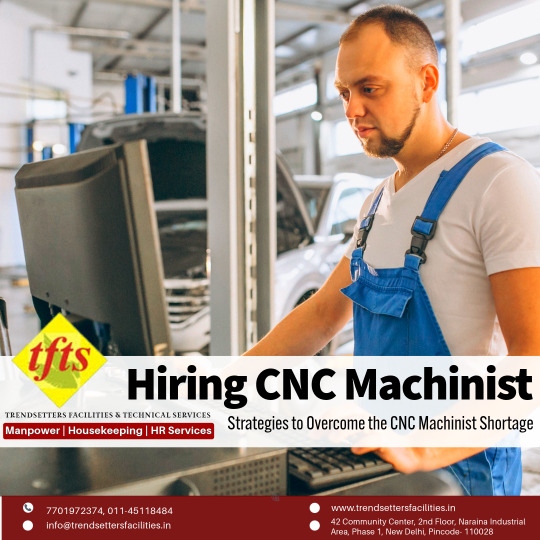
What is a CNC Machinist Technician?
Mr. Atul Mahajan, Director of Trendsetters Facilities and Technical Services, states that a CNC Machinist Technician is a skilled professional who operates and maintains CNC machines—automated tools used for cutting, drilling, shaping, and producing parts from materials such as metal and plastic. These technicians are trained to read blueprints, program machine tools, monitor production processes, and ensure products meet exact specifications.
They play a crucial role in industries such as aerospace, automotive, medical devices, and general manufacturing. CNC machinist technicians combine technical expertise with hands-on precision to deliver high-quality, consistent components in mass production or custom fabrication settings...
Read Here: http://www.trendsettersfacilities.in/wordpress/2025/05/29/strategies-hire-cnc-machinist-india/
#besthrcompanyinindia#bestpayrolloutsourcingcompanyinindia#bestmanpoweroutsourcingagencydelhi#bestitrecruitmentcompanydelhi#bestlabouroutsourcingcompanyinindia#hire cnc machinist operators in india#hire cnc machinist operators for msme industries in india
0 notes
Text
Precision CNC Machining for Medical Devices
Get precision CNC machining services at RPWORLD. We specialize in CNC milling, CNC turning, and high-quality on-demand manufacturing solutions. Precision CNC Machining for Medical Devices
#CNC Services for Automotive#CNC Machined Parts Suppliers#How CNC Machining Works#CNC Machining Services Near Me#CNC Milling Services for Electronics#Custom CNC Parts for Prototyping#Rapid CNC Prototyping Services
0 notes
Text
Why is CNC Machining Widely Used in Medical Industry?

The medical field is considered to be the one where mistakes are rare, and the same rule applies when it comes to the manufacture of medical parts, since human life is at stake in this field and even small mistakes can lead to serious health problems or even death. CNC metalworking or CNC metal machining is growing in popularity because of its ability to produce detailed and accurate results in large quantities, which has led to an increase in the number of manufacturers using CNC machines in the medical industry. Thus, the machining techniques used by machinists to produce medical parts must support tight tolerances and high-precision measurements.
Medical parts range from small components such as buttons or switches to larger parts such as monitor housings. From surgical equipments and artificial joints to components for medical pumps, CT and MRI scanners, CNC machining offers an excellent way to produce precision medical parts.
Let's take a look at the specific application of CNC processing in the medical industry. 1.Production of High Precision Medical Parts ①Implant Manufacturing Devices implanted in the human body, such as pacemakers, artificial joints (e.g., hip replacements and knee implants), and dental implants, which require a high degree of precision and biocompatibility. CNC machining centres are capable of machining complex geometries based on detailed CNC programming and achieving extremely high tolerance control, ensuring consistency and specification accuracy of parts. ②Production of Surgical Tools & Equipments Surgical tools including scalpels, scissors, complex robotic arms, etc. need to be manufactured with a high degree of precision to ensure a smooth surgical process and patient safety. CNC machining centres are capable of producing complex geometries and tight tolerances to meet the high precision requirements of surgical tools. Equipment that comes into direct contact with patients must be biosafe, easy to sterilise and regularly disinfected. CNC processing is compatible with biocompatible materials that can withstand harsh chemicals and continuous cleaning.
2.Personalised Medical Equipment Customization ①Prosthetics & Assistive Devices The CNC machining centre uses 3D scanning and CAD modelling technology to customize prosthetics and assistive devices to the patient's physical characteristics, ensuring a perfect fit and functionality of the device. This personalisation improves patient comfort and treatment outcomes. ②Orthopaedic Implants Depending on the patient's bone structure and needs, CNC machining centres can manufacture personalised orthopaedic implants for precise medical prosthetics.
3.Medical Device Prototyping Rapid prototyping is a crucial part of the medical device development process. CNC machining centres can quickly convert digital designs into physical prototypes, enabling engineers to test and refine designs in a short period of time, thus speeding up product development cycles. ①Ultrasound System Ultrasonic systems consist of a number of individual components that can be manufactured with high precision by CNC machines to help eliminate the possibility of machine failure. ②Ventilator Components The high tolerances and efficient production of medical components make CNC machining the optimum manufacturing process for devices such as respiratory components, where the success of the machine is crucial. ③Heart Rate Monitor Heart rate monitors are extremely complex devices that must meet stringent standards to eliminate the risk of failure. CNC machining ensures extremely precise manufacturing of even the most complex components.
There are many benefits to using CNC machining to manufacture a wide range of medical components and parts: 1.No Fixed Tools CNC machining is unrivalled for quick turnaround and minimal investment in small batch production or even one-off products. Parts for the medical industry must often be manufactured quickly and in small batches. At the same time, CNC metalworking allows parts to be manufactured without specialised tooling, which can lengthen the manufacturing process but provide excellent quality and accuracy even without tools.
2.No MOQ & Low Volume Manufacturing For medical devices that need to be produced in small batches, CNC machining centres are able to flexibly adjust the production plan, reduce production costs and improve production efficiency. After creating a digital CAD (Computer Aided Design) file, you can easily build a cutting programme from it at the press of a button. This coding application allows for the manufacture of individual parts or any number of parts with the highest degree of precision and accuracy. No MOQ is a huge benefit when creating one-off or disposable custom parts such as highly specialised medical devices, appliances, equipment, prosthetics and other medical or surgical products.
3.High Tolerances Many medical types of equipment require large tolerance ranges, which are easily achieved using CNC machines. Surface finish is often very good and requires minimal post-processing, saving time and money, but this is not the most important consideration. In general, the most important thing to remember about medical supplies and equipment is that they must be fit for purpose and any deviation from the standard can mean disaster.
4.Biocompatible Material Handling CNC machining centres are capable of handling a wide range of biocompatible materials including plastics, metals (e.g. titanium and stainless steel), ceramics, etc., ensuring that the material maintains its properties and biocompatibility unaffected by the machining process. This is particularly important for the manufacture of medical implants and surgical tools.
5.Automated Production & Quality Control CNC machining centres are integrated with advanced technologies such as automation and Artificial Intelligence (AI) to automate and intelligentise the production process. This reduces the variables and errors introduced by human intervention and improves productivity and product quality. Many CNC machines are equipped with in-line inspection systems that monitor process quality in real time, ensuring that the final product meets stringent medical standards.
6.Material Optimization & Cost Reduction With CNC machining, manufacturers can optimize material usage and reduce waste and costs. This is particularly important for implant production using high-value materials such as titanium and platinum.
7.Complex Geometry & Internal Structure Machining CNC machining is capable of producing complex geometries and intricate internal structures that are often difficult to achieve with other manufacturing methods. The ability to accurately carve internal cavities, channels and delicate features is particularly valuable when manufacturing implants, micro devices and surgical instruments.
8.Test and Analyse Components CNC machining creates accurate and highly repeatable components for test and analysis equipment.
In summary, the application of CNC machining in the medical device industry not only improves the precision and personalisation level of medical devices, but also accelerates the product development cycle, reduces the production cost and promotes the innovation and development of the medical device industry.
#design#business#prototyping#prototype#prototype machining#rapid prototyping#cnc machining#precision machining#medical devices#medical industry#cnc precision machining#cnc medical#cnc medical parts#cnc medical machining
1 note
·
View note
Text
How to improve the operating efficiency of integrated servo motors?
1.Basic definition of integrated servo motors An integrated servo motor is a servo motor that highly integrates the motor, encoder and driver. Compared with traditional distributed servo motors, integrated servo motors reduce the number of cable connections, greatly reducing the size of the entire servo system, making it easier to install in equipment, especially those with limited internal space.

2.Working principle of integrated servo motors The working principle of integrated servo motors is based on a closed-loop control system. Its core components include servo motors, drivers and encoders. After the servo motor receives the control signal, the driver adjusts the power supply of the motor according to the signal to ensure that the actual motion state of the motor is consistent with the requirements of the control signal. The encoder monitors the actual position, speed and torque of the motor in real time, and feeds this information back to the driver and even the controller. The driver compares the actual feedback value with the target value of the control signal, calculates the deviation and adjusts the drive current of the motor accordingly, thereby achieving closed-loop control.
3.Main application areas of integrated servo motors
1.In the field of industrial automation, integrated servo motors are widely used in various production lines and mechanical equipment. They can provide precise position control, high-speed dynamic response and smooth motion characteristics, thus ensuring the stability and high efficiency of the production process. For example, integrated servo motors can be seen in CNC machine tools, packaging machinery, printing equipment and textile machinery.
2.Robotics is another important application field of integrated servo motors. Whether it is industrial robots or service robots, they need to use integrated servo motors to achieve precise motion control and flexible motion capabilities. These motors not only provide strong power support for robots, but also enable robots to complete more complex and delicate tasks.
3.In the field of medical equipment, integrated servo motors also play an important role. Many advanced medical devices, such as surgical robots, imaging equipment and rehabilitation equipment, require the help of integrated servo motors to achieve precise operation and control. The application of these motors not only improves the performance and reliability of medical equipment, but also brings better treatment effects and rehabilitation experience to patients.
4.The aerospace field has extremely high requirements for the performance and reliability of equipment, and integrated servo motors can meet these needs. In aerospace vehicles such as aircraft and satellites, integrated servo motors are used to control the movement and position of various key components to ensure the stable operation and safe flight of aerospace vehicles.

4.Efficiency improvement methods for integrated servo motors
1.Motor selection and parameter adjustment: Select a suitable servo motor according to actual needs to avoid waste or insufficiency caused by excessive or insufficient power. Adjust the motor's inductance, resistance, rotor inertia and other parameters to improve the motor's response speed and accuracy. For example, the use of permanent magnet synchronous servo motors can effectively improve system performance due to their higher efficiency and better dynamic performance.
2.Optimize the transmission system: Reduce friction and inertia losses in the transmission chain, use low-friction transmission devices and efficient transmission ratios, and significantly improve transmission efficiency. Redesign the mechanical structure, reduce the inertia of components, or optimize the mechanical motion trajectory to reduce the load, thereby increasing the motor speed.
3.Application of advanced control algorithms: The use of advanced control algorithms, such as vector control, direct torque control, fuzzy control, neural network control, etc., can greatly improve the control accuracy and response speed of servo motors. In particular, model predictive control and adaptive control can automatically adjust control parameters based on system models or real-time data to adapt to the dynamic changes of the system and improve the robustness and adaptability of the system. 4. Precision control and multi-axis linkage: Through precise position, speed and force control, the energy loss and error accumulation of the motor during operation are reduced. For application scenarios that require multi-axis linkage, the use of multi-axis controllers can achieve synchronous control of multiple servo motors and reduce the energy consumption and cost of the system. 5. Regular inspection and maintenance: Regularly inspect and maintain the servo motor, including cleaning, lubrication, tightening, etc., to ensure that the motor is in good operating condition. Once a motor fault or abnormality is found, it should be handled in time to avoid the expansion of the fault and cause greater damage to the motor. 6. Power supply and voltage stability: Servo motors have high requirements on the quality of power supply, and power supply voltage fluctuations will directly affect the speed control accuracy and response speed of the motor. Therefore, it is necessary to ensure that the power supply voltage is stable within the rated range, and the power supply waveform can be trimmed by adding filtering circuits and other methods. 7. Heat dissipation optimization: In the process of improving the performance of servo motors, pay attention to the heat dissipation of the motor. By improving the heat dissipation design, such as adding heat sinks, using fans or liquid cooling systems, etc., ensure that the motor will not affect performance due to overheating when running at high speed.
Source:https://dedicated-taro-nvvpnw.mystrikingly.com/blog/how-to-improve-the-operating-efficiency-of-integrated-servo-motors
0 notes
Text
The Impact of CNC Machining on Producing High-Quality Medical Devices
Medical CNC machining is a cutting-edge manufacturing technique that is known for its ability to precisely construct complex components. In the medical industry, where tolerances are critical, CNC machining emerges as an ideal method for crafting components for diverse medical devices, from surgical scissors to blade handles.
Learn More
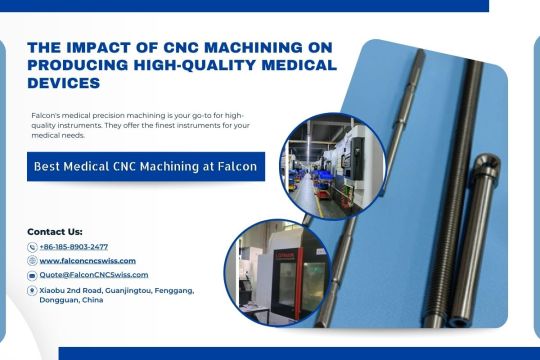
#cnc machining medical devices#medical cnc machining#precision medical machining#medical machining parts
0 notes
Text

#Aluminum In #HealthCare: #Strength #Safety & #Precision #Medical #Equipment🥼 & #Devices #MRI #Machines #Surgical #tools & #diagnostic #Instruments At #GoyalInc🗜️ we #manufacture high precision #aluminumcomponents that #help medical🩺#professional provide #better #patient #care http://incgoyal.com https://x.com/goyal_inc https://www.youtube.com/@GoyalInc https://www.instagram.com/goyalinc https://in.pinterest.com/goyalinc https://www.facebook.com/incgoyal https://www.threads.net/@goyalinc #DieCasting⚙️ #DigitalMarketing #Extrusion🔧 #AluminumDiecasting #PrecisionMachinedParts #precisionMachining #Machinedcomponents #AluminumProfiles #Engineering #manufacturing #CNC #AluminumExtrusion #AluminumProfile
2 notes
·
View notes